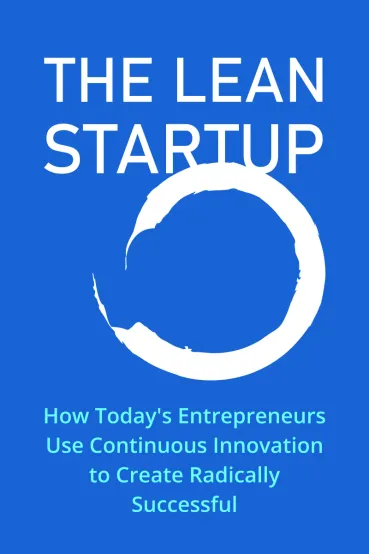
The Lean Startup
Brief Summary
“The Lean Startup” describes a business-building process that emphasizes learning what customers genuinely want. This book is revered among entrepreneurs and serves as a handbook for successful startups. Its principles are built on "validated learning," rapid scientific experimentation, and many counterintuitive practices.
Topics
Key points
Key idea 1 of 7
Traditional company strategies are similar to launching a rocket: every detail is carefully prepared for years. Yet, this sort of strategy is completely ineffective in the unsteady business climate. It explains why so many of them fail. A more effective approach to running a business is doing it like driving a car. You may start off with a clear course, but when you encounter obstacles, you might quickly change your direction.
In a startup, speed is critical. Whether you’re burning through your or investor’s money, you need to act fast. Successful businesses do not solely rely on forecasts; they create real value through validated learning. This approach allows teams to scientifically prove they’ve gained key insights into their startup’s potential. It’s about proving what really works by testing the ideas in the real world.
It is possible to reduce the work required to find out what customers desire. To use the method, you need to gather empirical data from actual customers. The best course of action is to develop the mindset that every business in any field is an experiment. Instead of wondering whether this product can be constructed, ask yourself, "Can we create a long-lasting company around this combination of goods and services?”
Methodical creation is essential for startup productivity, too. Every action, from features to marketing campaigns, should be viewed as an experiment intended to validate learning assumptions. This is where lean thinking proves beneficial. It views waste as everything that does not help the customer and defines value as something that does. Its goal is to identify and eliminate activities that do not add value.
Eric Ries recounts the early days of IMVU, a startup that aimed to enter the instant messaging market. Although the team extensively planned the product, the initial launch was a failure. They focused on creating an IM add-on that would interoperate with existing networks, but customers weren’t interested in that. By focusing on learning and adapting its strategy based on customer feedback, IMVU was able to overcome initial setbacks and achieve success.
FAQ
You may also like these summaries











